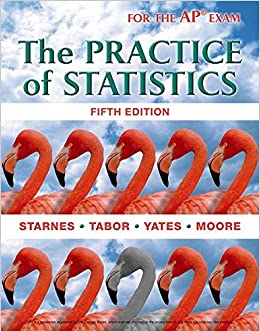Liar, liar! Sometimes police use a lie detector (also known as a polygraph) to help determine whether
Question:
Liar, liar! Sometimes police use a lie detector (also known as a polygraph) to help determine whether a suspect is telling the truth. A lie detector test isn’t foolproof—
sometimes it suggests that a person is lying when he or she is actually telling the truth (a
“false positive”). Other times, the test says that the suspect is being truthful when the person is actually lying (a “false negative”). For one brand of polygraph machine, the probability of a false positive is 0.08.
(a) Interpret this probability as a long-run relative frequency.
(b) Which is a more serious error in this case: a false positive or a false negative? Justify your answer.
Fantastic news! We've Found the answer you've been seeking!
Step by Step Answer:
Related Book For 

Question Posted:





